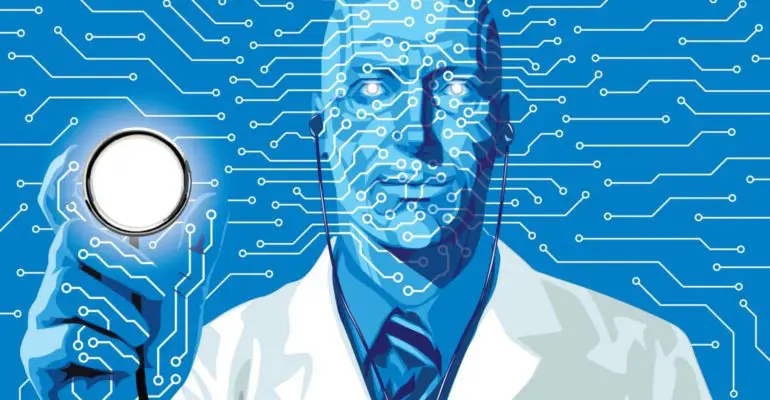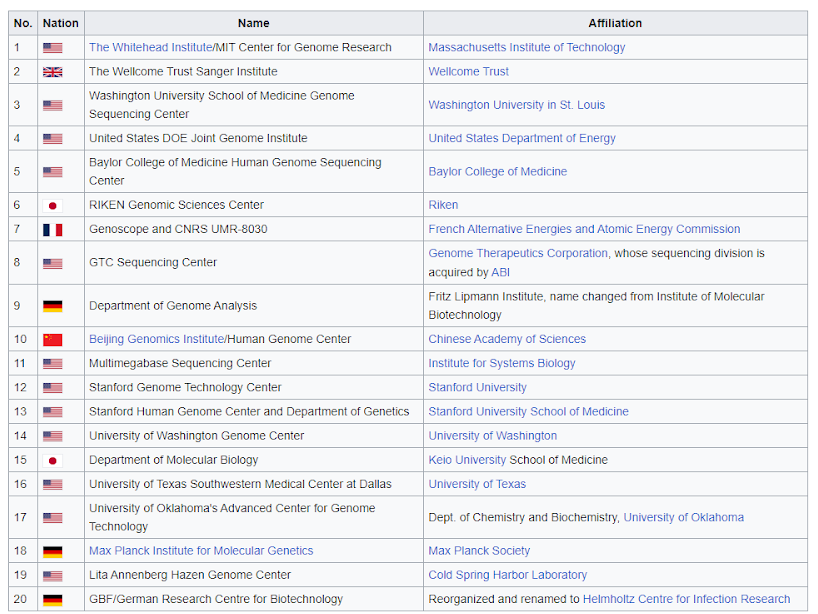How much knowledge of AI do doctors actually need?

Artificial Intelligence (AI) is without doubt going to be one of the most transformative technologies of the next 100 years, it will be the most powerful tool humanity has ever built. As AI continues to permeate various aspects of healthcare, will doctors need to have a basic understanding of AI concepts and tools to ensure they can use them effectively and safely?
There is currently a massive range in the computational skills of doctors and most of that variability depends on what they do in their day to day with their work. Are they mostly practicing clinician? A clinical academic? Or have they left medicine into the commercial world? It's probably best to be more specific with the question we are asking. How much knowledge of AI does the average doctor who spends most of their time seeing patients need?
Currently
The amount of AI knowledge that doctors need to do their jobs today is pretty much none at all. Whether they are a GP or a Neurosurgeon, most doctors can go about their work without any knowledge of AI and machine learning as there are currently very few places where they are likely to interact with it. Outside of medical imaging, doctors today who work with patients are unlikely to regularly directly interact with and benefit from AI tools. Ultimately, today the average doctor’s job will not be dependent on an intimate understanding of AI. However, there are a lot of doctors who are working on very interesting projects that focus on the overlap between AI and medicine. Those who are working on applying these tools to medicine are expediting the application of a very powerful tool to a set of problems that are very important.
In the future
As time goes on and AI continues to be developed and deployed in medicine, its going to become more important that doctors are aware of AI. An appropriate analogy would be how much knowledge did doctors in the 1880 need to have of electricity? Or in the 1950s of computers? Or in the 1990s of the internet? Well in terms of doing the job of being a doctor no knowledge of these developments was needed at all, but those who applied the technology to their work early came out with significant breakthroughs.
In 1895, a Dutch doctor Willem Einthovenwas experimented with electromagnets he managed to create the first prototype of an ECG which he later won the Nobel Prize for in 1924. When Einthoven was a young researcher at the University of Utrecht in the Netherlands he began experimenting with electromagnets, which he believed could be used to detect and amplify the small electrical signals produced by the heart. He developed a machine that he called the "string galvanometer," which used a thin wire or string coated with silver to detect electrical signals.
Before Willem Einthoven's invention of the ECG, there were several crude devices that attempted to measure the electrical activity of the heart, but they were not reliable or accurate. Some of the early devices included the capillary electrometer, which used a glass tube filled with a conducting liquid, and the Lippmann electrometer, which used a thin gold leaf suspended in an oil-filled chamber.
Einthoven made several important improvements to a previous version of the string galvanometer device, including a more stable suspension system, a more sensitive magnetic field, and a system for amplifying and recording the electrical signals produced by the heart. This work on the ECG laid the foundation for the study of the electrical activity of the and it quickly became a standard tool in cardiology. Today, the ECG remains an essential tool in the diagnosis and treatment of heart disease.
Equally when Dr Francis Collins was head of the International Human Genome Sequencing Consortium (IHGSC) and overseeing the Human Genome Project, without use and understanding of the internet or computers they wouldn’t have been able to do it. This was a collaborative effort of scientists from around the world to sequence the entire human genome.
The IHGSC was established in 1990, and its goal was to sequence the entire human genome and make the information freely available to the scientific community. The project was a massive undertaking that required the use of cutting-edge technology, including high-speed computers and advanced software. One of the challenges faced by the IHGSC was the sheer amount of data that needed to be analysed and processed. The human genome contains more than three billion base pairs of DNA, which is an enormous amount of data. To make sense of this data, the IHGSC needed to use sophisticated computer algorithms and high-performance computing systems. Collins recognized the importance of computing technology in the project and worked to develop new tools and software to aid in the analysis of the human genome. He also recognized the importance of sharing data and information among the different groups working on the project, which required the development of new systems for sharing data over the internet. One of the key achievements of the IHGSC was the development of a publicly available database that contained the complete sequence of the human genome. This database, called GenBank, allowed scientists from around the world to access and use the data, which has led to numerous breakthroughs in the field of genetics and medicine.
Collins' work with the IHGSC demonstrated the importance of computing technology in modern biology and medicine. Today, high-performance computing systems and sophisticated algorithms are used in a wide range of scientific fields, including genomics, proteomics, and drug discovery.

Key takeaway
The point here is that while it may not be the explicit job of doctors to have an awareness of AI in medicine, there is an increased likelihood that important and difficult problems will be solved if those who work in the medical field have a robust set of computational skills. Will we get to a point where all doctors need to have at least a basic to moderate understanding of artificial intelligence to do their job? Will the average doctor need to be familiar with the basics of machine learning, natural language processing, and computer vision to understand the capabilities and limitations of AI systems?
For the average doctor, probably not. At the end of the day, doctors are there to diagnose and treat diseases and their expertise is in knowing the human body and how it breaks down, it's unlikely that all doctors will have to know how to code or have a detailed understanding of different types of machine learning models and how they work, even when we start seeing more machine learning in medicine. When it starts to get implemented you won't need to know if it's using a neural net or logistic regression, all you will care about is what job does it do and how is it helping you treat the problem that the patient has. There will have to be strict regulation, we are going to need doctors that know in depth how they work to ensure that they are safely deployed. Some doctors will need to have a high level of insight but the average doctor will likely not need much to continue doing their work
Further reading
If this kind of stuff interests you. There are some suggestions for further reading below:
Books
Podcasts
- AI for Health - best episodes are with Eric Topol, Andrew Ng
- NJEM AI Grand rounds - podcast run by the New England Journal of Medicine, one of the world’s most prestigious medical journals interviewing experts in medical AI.
- MaML Podcast - Medicine and Machine Learning Podcast
- The Computational Medicine Podcast - My own podcast where I interview people working on the overlap between AI and Medicine.
YouTube
- Chris Lovejoy: doctor turned machine learning researcher has loads of videos giving an overview of machine learning in medicine and some teaching about where to get started.
- Big Picture Medicine: YouTube channel for Big Picture Medicine Podcast.
- The Computational Medicine Podcast: YouTube channel for my podcast.
Academic papers
- Good email newsletters for finding academic papers include The Batch, Doctor Penguin and GroundTruths.
